Brighter Tomorrow: Help the children of Babag, Philippines
In the mountains of Cebu, child sponsorship has the power to send children to school safely and encourage them to chase their dreams.
Sponsored children: 0 of 13
What was your state of mind before returning to the Philippines?
Laure: Our suitcases had been ready for a long time. We first believed that we would leave in December 2020, then in March, and it was finally in May that we received our visa. There was no apprehension on our side, but on the contrary, a lot of impatience!
Yann: We continued to work online with the local teams. Such ensured that there were no breaks in our daily activities and guaranteed the follow-up of tasks. What we lacked was human contact. Being understaffed has forced us to eliminate certain intermediaries in our operations, but it improved team cohesion.
The constraints of the health crisis and remote management have enabled you to create additional bridges with the local teams compared to the way you operated before.
Laurie: Absolutely! We had to reinvent new piloting methods due to the decline in staff and the absence of volunteers in the field. This led us to work directly with several local programme managers, and it inevitably brought us closer together. So today, after months of remote management, the reunion is even stronger!

Do you have any examples?
Yann: The Zoom meeting that we organised in December brought together all the local officials in the Philippines. They were more than a hundred connected. It may sound strange, but it was the first time that all these people, who share so much through their commitments, have come together virtually at the same event. The meeting was so successful that other programmes replicated the model. It exemplifies how innovations can emerge from constraints. [Back then] I did not believe that bringing all these people together in person would have been possible.
Laurie: For the volunteers, it created a sense of belonging to the Children of the Mekong’s family. Not only did they realise that they were not alone, but also the incredible effectiveness of child sponsorship in the Philippines. Many were impressed by the number of attendees at the video conference and the number of sponsored children across the country. They were so happy to see each other that we even had a hard time ending the meeting.
Yann: Another example relates to the centres which welcome students in boarding houses. Volunteers usually run these centres, but their absence has led us to entrust them to local officials. Social workers have revealed their capacities and they have blossomed incredibly with this new responsibility. We are very grateful for their commitment. Without them, the centres could not have remained open.
Learn more about our privacy policy here.

How was your return to the field?
Laurie: Before returning to France in August, we had been confined for five months. We had, therefore, not met the families since March 16, 2020 … More than a year without visiting the programmes. And finally, the general impression is that nothing has changed. It is like we parted ways yesterday. Most families tell us that the quarantine was very hard. They are now more or less managing to regain their standard of living, that was not very high to begin with. Many businesses, however, have closed and public transport remains limited in the cities. It has become challenging to move around.
Yann: This is all the truer since jeepneys – a sort of local buses built from old jeep chassis in which Filipinos pile up on two long benches- were banned for several months for public health reasons. This is no longer the case, but lines remain closed, and their number has fallen sharply. The price of classic buses has doubled. They are therefore inaccessible to the poorest.
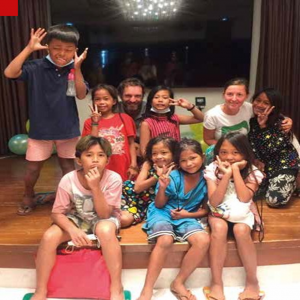
Isn’t there a contradiction here? If businesses and transports have not reopened, how have families regained their standard of living?
Laurie: I am talking about our sponsored children’ families who are among the poorest in the country. They did not work in shops, restaurants or as jeepney drivers. For them, life has resumed its very precarious course. Health crisis or not, they tend to be resourceful to survive. But nationwide, the situation is indeed still dramatic. For workers, not being able to move around is a real handicap.
Yann: We must also distinguish between the city and the countryside. Farmers have had a better experience during the pandemic because of their crops. Vegetable gardens have flourished everywhere, including in the town. Supermarkets now offer vegetables grown in the city. It also demonstrates both the Filipino sense of resourcefulness and that food was lacking during the stringent quarantine.
For £28 a month, you sponsor a child and give them access to education. Your sponsored child can aspire to a brighter future.
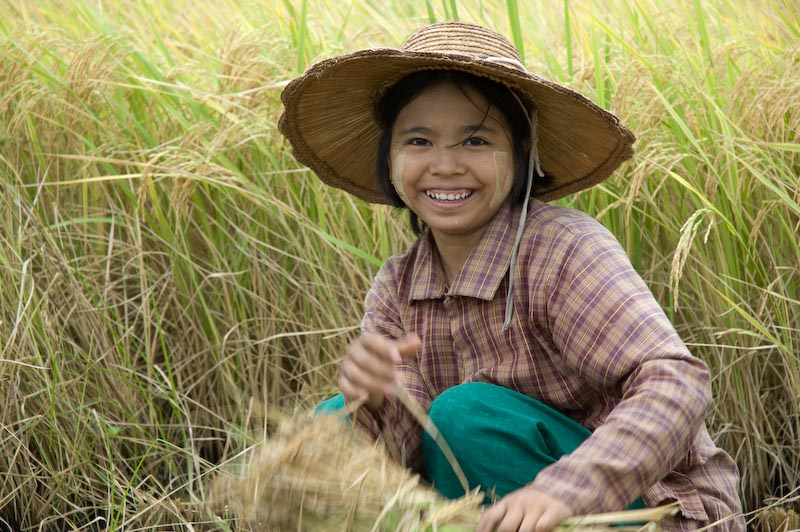
Is this a sign that members of the Filipino middle class are falling into the poorest class?
Laure: During the recruitment of sponsored children who will be welcomed in our centres at the start of the next school year we have observed an increase in candidates. Some of these candidates should not have been eligible according to our usual recruitment criteria.
Yann: Traditionally, in a Filipino family, when a child graduates and finds a job, they help with the education of their siblings. Because we are committed to serving the poorest and most in need families, we usually recruit our sponsored children from families whose none of the children have graduated yet. But this year is an exception as many graduates are now unemployed and therefore cannot financially support their families. This makes a big difference, especially since many state scholarships and numerous private sector charity in the educational field have been suspended. Additionally, the Philippines is currently experiencing the deepest recession in its economy since 1946.
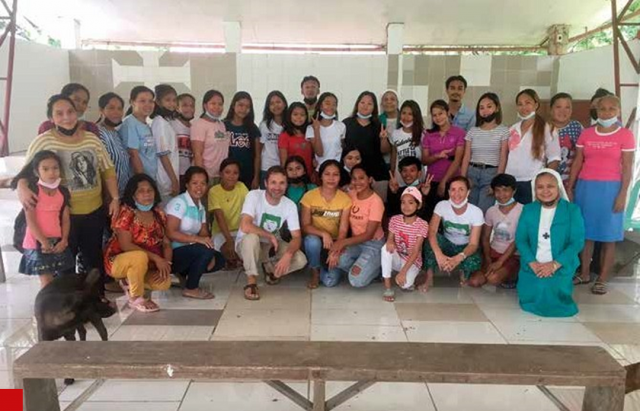
With the recession, what future challenges do you identify?
Laurie: First, there are two levels. Immediate help for many families in need. Among these families, some will be able to cope on their own once the economy recovers.
Yann: We are starting another year of online teaching. This is another crucial issue. Education has been provided remotely for fifteen months. For the youngest in elementary school, these are modules in the form of handouts that parents collect from school every week. In this system, parents are expected to assist their children. In the majority of the families we take care of the parents cannot teach their children. For the older children, courses are dispensed online. We are thinking about the way we can assist young people to pursuit their education, especially for those living in the countryside who do not have access to a stable internet network.
Laurie: The underlying question is: how will young people be able to return to school after two years of academic disengagement? Will they be able to? It is, therefore, necessary to ensure the maintenance of school habits and, as much as possible, and the reintegration of those who have already dropped out to limit the damage.
Yann: Not to mention the educational issue caused by screen addiction. The use of social networks and online games exemplifies the extend of the problem. The issue is mainly due to the boredom of young people who no longer go to school and are not allowed to go out on the streets.
What do we have to implement to overcome these challenges?
Yann: The crisis has had a revealing effect on the psychological fragility of some of our young people. They have suffered from crisis and the precariousness of their families. We have witnessed a lot of cases of anxiety, sleep disorders, and even depression. Some young people even told me about suicide. It never happened to me before. Therefore, we have set up psychological monitoring in each of our centres and programmes to support them.
Laurie: In the centres that offer the holistic training we also able to organize specific activities that provide answers and opportunities to reflect on certain topics, and in particular the screen addiction. In programmes, it is more complicated. The children are dispersed, and the law prohibits gatherings. It is, therefore, an additional stake we want to focus on next year; when meetings will be authorised, we will recreate bound within programmes and organise educational activities for all the sponsored children.
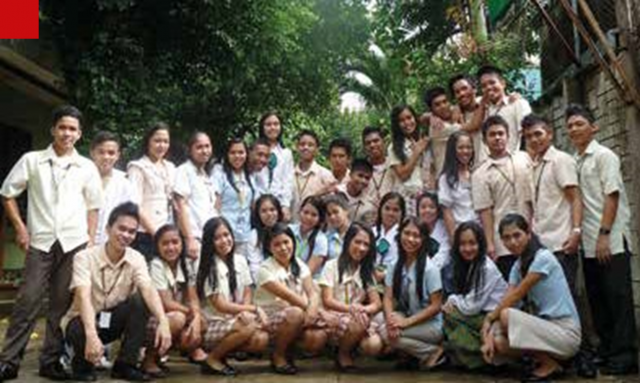
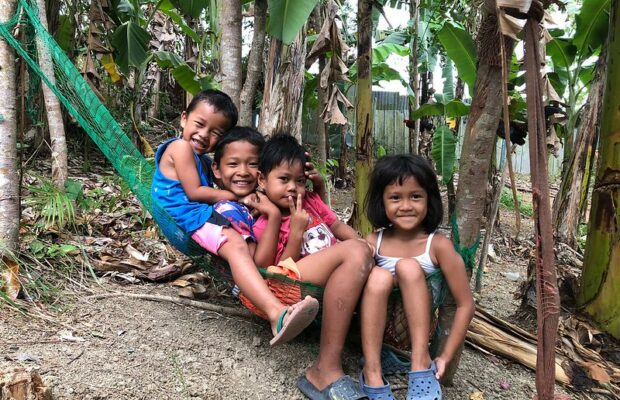
In the mountains of Cebu, child sponsorship has the power to send children to school safely and encourage them to chase their dreams.
Sponsored children: 0 of 13
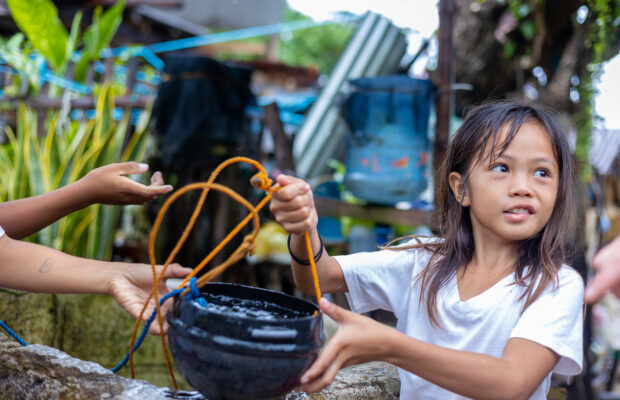
In the small town of Liboro, Philippines, sponsorship has the possibility of transforming the lives of young people by sending them to school.
Sponsored children: 11 of 13
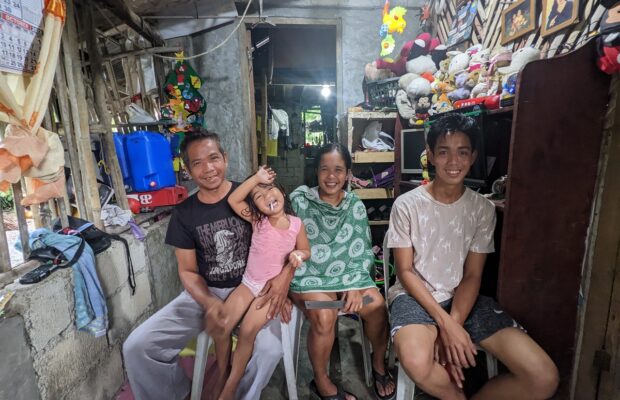
In this isolated region in the north of the country, it is difficult if not impossible for the poorest families to send their children […]
Sponsored children: 14 of 15
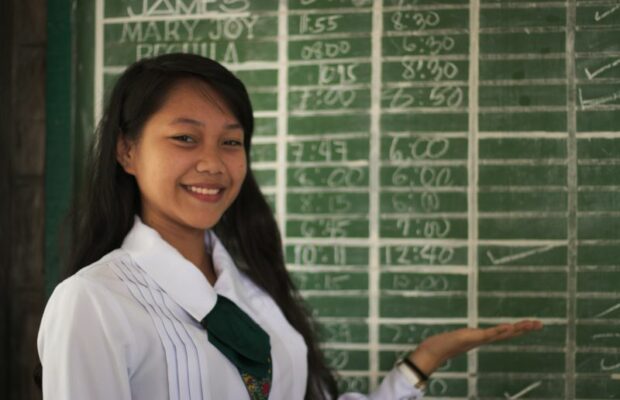
Urban poverty is appalling in the Philippines. Sponsor a child today and give them the chance to get out of poverty thanks to the […]